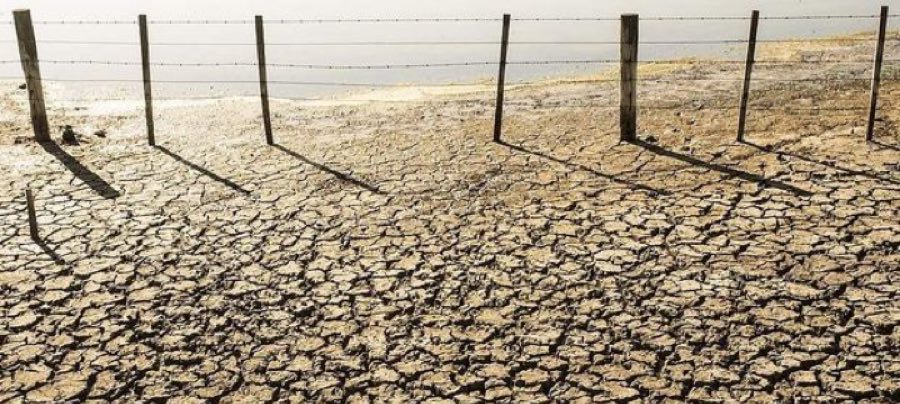Updated: Tuesday 30 Jan 3:50pm
Minister for Agriculture and Rural Communities Damien O’Connor today announced that the medium-scale adverse event classification for the drought in parts of the country would be extended to the whole of Southland plus Otago’s Queenstown Lakes, Central Otago and Clutha districts.
The classification triggers additional funding of up to $130,000 for the local Rural Support Trusts and industry groups to coordinate recovery support.
“We’ve been working with local farming groups, councils and NIWA to monitor how the drought has been progressing and the impact on the farming communities,” said Mr O’Connor.
“Anticipated rain that could have provided respite just hasn’t fallen in the right areas to mitigate the effects of the early hot dry summer.
“Farmers have been unable to grow sufficient feed for winter, and have been using stored feed and buying in supplements for stock, as well as selling off animals.
“Some useful rain is predicted for this week, however the drought has already taken its toll on farms and will take time to recover from. While rain now would allow pasture to grow, this can take a month to translate into feed for animals, and many are now well behind in preparing for winter.
“So the recovery assistance measures are as important as ever, even when we finally get decent rain.”
The formal request for the classification was made by drought committees and rural communities yesterday in a letter to Mr O’Connor – in which they highlighted this was an extremely unusual event for Southland.
“Organisations in the regions are gearing up to assist farmers with feed budgets, technical information and farm management, and stress management. The early start to a hot dry summer has now taken its toll on the groundwater and rivers in the south of the country, and farmers are working hard to look after their animals in a very challenging climate.”
The Minister of Revenue has welcomed the activation of Inland Revenue’s income equalisation discretions for this drought, and Inland Revenue will also consider hardship situations. Farmers should contact their accountants in the first instance.
The drought was originally classified as a medium-scale adverse event in the North Island across Taranaki, western parts of Manawatu-Whanganui and Wellington, and the Grey and Buller districts of the South Island’s West Coast over the Christmas period. Significant rain has improved soil moisture in some of those areas, but recovery from the drought is an ongoing process.
Criteria for medium scale event classification
Like all adverse events, a drought is classified as either localised, medium-scale, or large-scale. MPI doesn’t declare droughts. Rather, they work with local stakeholders when there is a drought and determine how it should be classified, based on its impact on the rural sector.
MPI assesses each adverse event based on the:
• options available for farmers to prepare for the event
• magnitude of the event (likelihood and scale of the physical impact)
• capacity of the community to cope (economic and social impact)
Drought committees
Both Otago and Southland have formed drought committees and have been actively working with their communities, such as hosting information events with DairyNZ, Beef + Lamb NZ, Federated Farmers, Environment Southland, Otago Regional Council and others, to give farmers the latest information around the drought and their options to get through it.
The Minister for Primary Industries needs to officially declare a drought and enable support for farmers in Otago and Southland, Clutha-Southland MP Hamish Walker says.
“The situation is serious and I have written to Minister for Primary Industries Damien O’Connor urging him to declare a drought and enable some short term relief for our farmers,” Mr Walker says.
“NIWA’s Drought Index shows that most of Otago and Southland is either already in drought or headed towards it without substantial rain soon.
“I’ve spent the past two weeks travelling around the Clutha-Southland electorate checking in with farmers and chatting to them about how they’re coping. While they have been handling the dry conditions reasonably well over the past couple of months, my offices in Gore, Balclutha and Queenstown have started to see a huge increase in inquiries from farmers concerned about the conditions over the past two weeks.
“Most farmers prepare for drought in advance, but the early onset of dry conditions this summer is starting to pose huge problems. Everyone, from farm owners to share-milkers, is beginning to come under severe financial pressure.
“I spoke to one farmer, in his sixties, who told me it’s the worst drought he’s ever experienced, others I’ve spoken to are getting rid of stock – it’s soul-destroying to watch
“The Government needs to act immediately and support these farmers.”
https://whatsoninvers.nz/environment-southland-water-situation-in-southland-now-serious/

